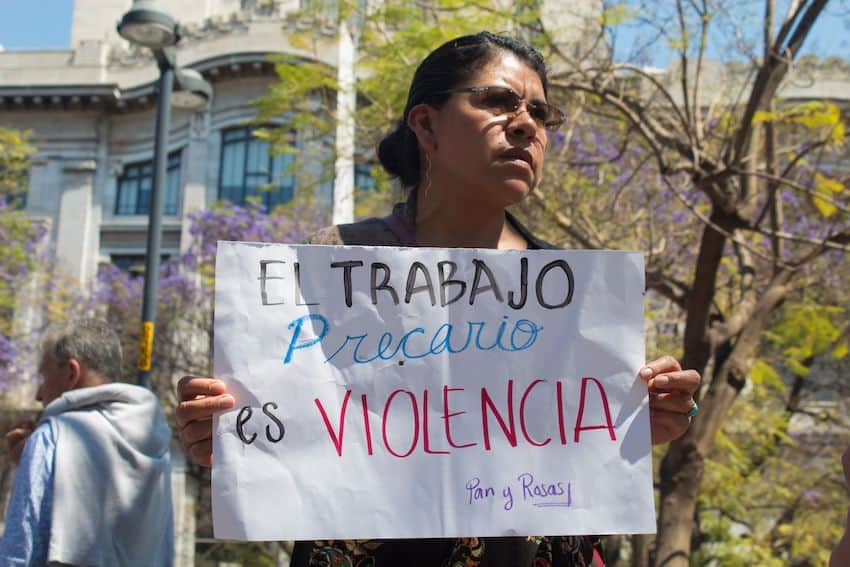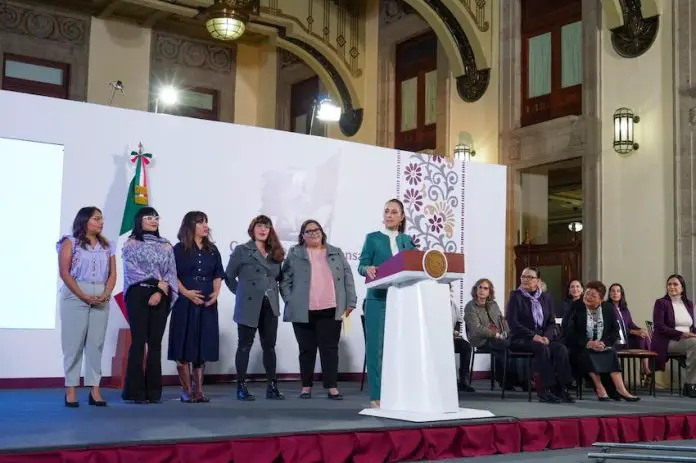President Claudia Sheinbaum would like to see Mexico’s minimum wage increase by around 12% per year during her six-year term in government.
The current minimum wage in most of the country is 248.93 pesos (US $13) per day or 7,467 pesos (US $390) per month after it almost tripled during the six-year term of former president Andrés Manuel López Obrador.

The minimum is higher in the northern border free zone, at 374.89 pesos (US $19.53) per day or 11,246 pesos (US $586) per month.
Sheinbaum, who was sworn in on Tuesday, told her morning press conference on Thursday that the objective of her government is for the minimum wage to cover the cost of 2.5 basic food baskets per week.
The canasta básica (basic basket) is a selection of 24 products including a kilogram of rice, a kilo of beef, 18 eggs, four kilos of tortillas and five liters of milk. On average, it cost 810 pesos (US $42) across Mexico in late September.
Sheinbaum said that federal officials would hold talks about the minimum wage with employers and unions in order to reach a consensus on annual increases, which are ultimately determined by the National Minimum Wage Commission, an autonomous government agency.
“Our objective is that … each [weekly] minimum wage reaches 2.5 basic baskets. At the moment it’s [equivalent to the cost of] 1.6 basic baskets,” she said.
Sheinbaum said that the increases to the minimum wage to reach the objective would be gradual so as to not put upward pressure on inflation.
“How will it be done? Well, it’s a process of consensus — the majority of businesspeople agree [with the government’s objective]. This will mean a salary increase of around 12% next year, and around 12% each year. And we’ll be working toward that, seeking a consensus so that it can be a reality,” she said.
According to the national statistics agency INEGI, around 40% of Mexico’s workforce earns the minimum wage or less, as many Mexicans work in the country’s vast informal sector, which doesn’t guarantee the minimum or provide any benefits to workers.
A 12% increase to the minimum wage would lift it to 279 pesos (US $14.55) per day or 8,364 pesos (US $436) per month in 2025.
A 12% increase during every year of Sheinbaum’s term would result in a minimum wage of 491.34 pesos (US $25.62) per day or 14,740 pesos (US $769) per month in 2030.
An annual 12% increase is well above the prevailing headline inflation rate — the most recent reading was 4.66% in the first half of September — and above the two-decade peak of 8.7% in August and September of 2022.
In February, López Obrador sent a constitutional reform proposal to Congress that aims to guarantee that annual minimum wage increases outpace inflation. Sheinbaum supports the initiative, which will likely pass Congress in the near future.
Mexico’s first female president is also in favor of reducing Mexico’s standard working week from 48 hours over six days to 40 hours over five. Congress began considering the proposal last year.
Sheinbaum is also seeking a constitutional guarantee of equal pay for equal work as part of a package of reform proposals aimed at boosting women’s rights.
With reports from El Financiero and Reuters
